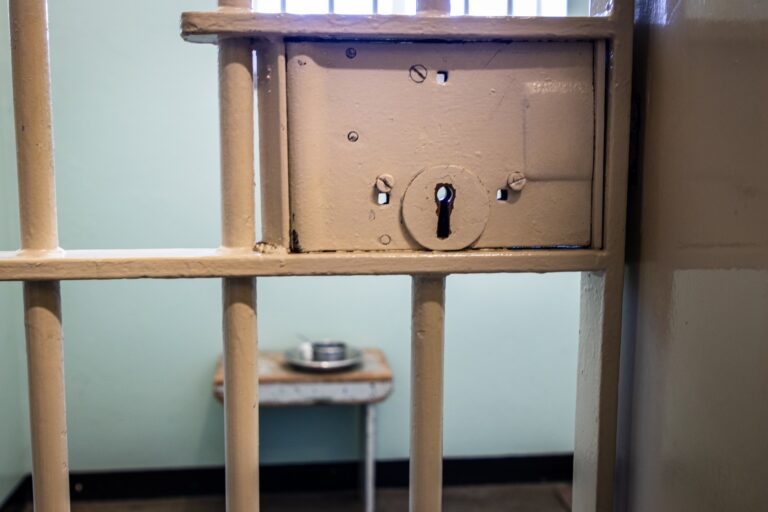Hydrocodone withdrawal is a multifaceted process that can vary markedly in duration and severity among individuals. Typically, symptoms commence within 6 to 12 hours following the last dose, peaking between days 2 and 4. While acute symptoms may resolve within a week, various factors—such as the length of use, dosage, and individual health profiles—can prolong discomfort. Understanding these nuances is essential for those affected, as the psychological aspects of withdrawal may persist even longer than the physical symptoms. Exploring these factors can illuminate the complexities of recovery and the paths available for support.
Understanding Hydrocodone Withdrawal
Understanding Hydrocodone withdrawal is essential for individuals considering treatment options for substance use disorders. Hydrocodone is an opioid pain reliever that alters the brain’s perception of pain, leading to significant effects on mood and physical sensations. Regular use can result in physical dependence, and when discontinued, withdrawal symptoms may occur. The effects can vary widely, ranging from euphoria to sedation. However, over time, tolerance develops, requiring higher doses to achieve the same effects. When an individual stops taking Hydrocodone, the body reacts negatively, prompting withdrawal symptoms.
These symptoms can include anxiety, insomnia, muscle pain, and gastrointestinal distress. Effective withdrawal management is important for alleviating these symptoms and supporting recovery. Medical professionals may recommend a tapering strategy, gradually reducing the dosage to minimize discomfort. Additionally, supportive therapies and medications can aid in managing withdrawal symptoms, promoting overall well-being during the recovery process. Understanding these nuances is key for making informed decisions about treatment and support options.
Timeline of Withdrawal Symptoms
The timeline of Hydrocodone withdrawal symptoms typically unfolds in a predictable pattern, allowing individuals and healthcare providers to prepare for the challenges of cessation. Withdrawal symptoms generally begin within 6 to 12 hours after the last dose and can peak around the second to third day. This initial phase often includes anxiety, muscle aches, and insomnia. As the detox process progresses, symptoms may evolve, with gastrointestinal disturbances, sweating, and increased heart rate becoming more prominent. These symptoms typically reach their peak intensity between days 2 and 4.
Following this peak, many individuals start to experience a gradual alleviation of acute symptoms, although psychological symptoms, such as cravings and mood swings, may persist. Effective symptom management is essential during this period. Supportive care, including hydration, nutrition, and, in some cases, medications to alleviate specific symptoms, can greatly enhance comfort. Generally, while acute withdrawal symptoms can last from a few days to a week, some individuals may experience lingering effects for weeks or longer, underscoring the importance of a thorough treatment plan to support recovery.
Factors Influencing Withdrawal Duration
Several factors can greatly influence the duration and intensity of hydrocodone withdrawal. Individual variability plays an important role in how each person experiences withdrawal. Factors affecting this variability include the duration and amount of hydrocodone use, as well as the frequency of use. Individuals who have consumed higher doses or have been using the drug for an extended period may experience more severe symptoms. The method of cessation is significant; those who quit abruptly may encounter more intense symptoms compared to those who taper their dosage gradually.
Co-occurring mental health disorders, such as anxiety or depression, can exacerbate experiences, leading to prolonged symptoms. Genetic predispositions also contribute to individual differences, affecting metabolism and sensitivity to pain. Age and overall health status influence duration, as younger individuals or those in better health may recover more quickly. A supportive environment, including access to medical care and counseling, can facilitate a smoother and shorter process. Understanding these factors is essential for those considering entering a treatment program.

Final Thoughts
To summarize, hydrocodone withdrawal presents a range of symptoms that typically commence 6 to 12 hours after the last dose, with peak intensity observed between days 2 and 4. The duration of acute symptoms generally spans several days to a week, influenced by variables such as the length of use, dosage, and individual health factors. Psychological symptoms may extend beyond the acute withdrawal phase, underscoring the complexity of the withdrawal experience. At Altitude Recovery, we’re here to elevate you from the challenges of substance use to a place of lasting resilience and renewal. Our dedicated team crafts personalized, evidence-based treatment plans, guiding you on a journey uniquely tailored to your needs and goals. Reach out for the compassionate support you deserve on your path to wellness by contacting us. Follow us on Facebook for more insights, resources, and stories of hope as we walk alongside you towards recovery.
Frequently Asked Questions
What Are the First Signs of Hydrocodone Withdrawal?
The early symptoms of hydrocodone withdrawal can manifest as a range of physical and psychological effects. Individuals may experience anxiety, irritability, and insomnia, alongside physical symptoms such as muscle aches, sweating, and gastrointestinal distress. These initial signs can vary in intensity and duration, potentially complicating the recovery process. Recognizing these symptoms early is essential for seeking appropriate support, such as an alcohol or drug abuse program, to facilitate a healthier shift away from dependence.
Can Withdrawal Symptoms Vary Between Individuals?
Yes, withdrawal symptoms can vary markedly between individuals. Factors such as the duration of substance use, dosage, individual physiology, and any co-occurring mental health conditions all contribute to the unique experiences of withdrawal. Psychological factors, including stress levels and support systems, can influence the severity and duration of these symptoms. Understanding these withdrawal factors is essential for tailoring effective treatment approaches in alcohol or drug abuse programs.
Is Medical Supervision Necessary During Withdrawal?
Medical supervision is often crucial during withdrawal from substances like hydrocodone, as it allows for a safe and monitored environment. Supervised detox can greatly mitigate withdrawal symptoms and complications through medical interventions, such as medication-assisted treatment and supportive care. This structured approach not only guarantees physical safety but also provides emotional support, enhancing the likelihood of successful recovery. Individuals considering withdrawal should consult healthcare professionals to determine the best course of action.
How Can I Manage Withdrawal Symptoms Effectively?
Managing withdrawal symptoms effectively involves a combination of strategies. Natural remedies, such as herbal supplements and hydration, can alleviate discomfort. Engaging in support groups provides emotional backing and shared experiences, which can be invaluable during this challenging time. Additionally, maintaining a healthy diet and regular exercise can promote overall well-being. It is essential to consult with healthcare professionals to tailor a plan that addresses individual needs, ensuring a safer and more supportive withdrawal process.
Are There Long-Term Effects After Hydrocodone Withdrawal?
Hydrocodone withdrawal can lead to various long-term effects that may impact an individual’s overall health and well-being. Psychological effects, such as anxiety, depression, and mood swings, can persist long after the initial withdrawal phase. Engaging in a thorough long-term recovery program can provide essential support and coping strategies to address these challenges. It is vital for individuals to seek professional guidance to facilitate their recovery and mitigate potential lasting psychological impacts.




